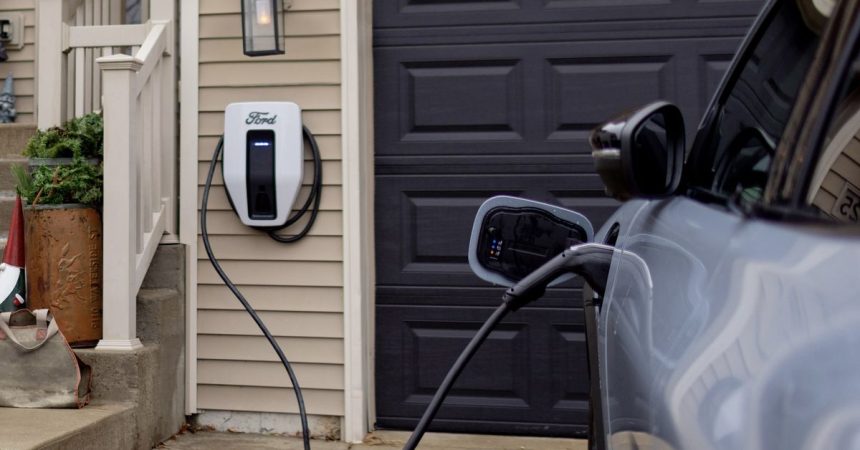Ford’s “Power Promise” initiative, launched in October 2024, aimed to incentivize electric vehicle (EV) adoption by offering a comprehensive package of benefits to new EV buyers. The program, initially slated to conclude on January 2nd, 2025, has been extended through March 31st, 2025, due to its popularity and Ford’s record-breaking EV sales performance. This extension allows prospective buyers of the 2024 or 2025 Mustang Mach-E, F-150 Lightning, or E-Transit additional time to capitalize on the offer, signifying Ford’s commitment to supporting its growing EV customer base.
The “Power Promise” package provides several key advantages for new Ford EV owners. Central to the program is the provision of a free home EV charger, including standard installation. This addresses a potential barrier to EV adoption, as home charging convenience is a significant factor for many prospective buyers. The inclusion of installation simplifies the process, eliminating the need for customers to navigate the complexities of finding and hiring a qualified electrician. Beyond the hardware, Ford offers 24/7 customer support specifically tailored to address any charging-related questions or concerns. This ensures that customers have readily available assistance throughout their EV ownership journey. Lastly, the program encompasses complimentary roadside assistance, providing peace of mind in case of unforeseen circumstances while driving.
The decision to extend the “Power Promise” initiative stems from Ford’s robust EV sales performance in the previous quarter, which the company described as its “best ever.” This success underscores the growing demand for Ford’s electric vehicle lineup and the effectiveness of the incentive program in attracting customers. Specifically, the Mustang Mach-E, F-150 Lightning, and E-Transit all experienced significant year-over-year sales growth, demonstrating the appeal of these models across various segments, from passenger SUVs to commercial vehicles. The Mustang Mach-E’s impressive fourth-quarter sales figures solidify its position as a strong contender in the electric SUV market, trailing only the Tesla Model Y.
The strong sales figures demonstrate a positive trajectory for Ford’s EV ambitions, although the company remains behind General Motors in overall EV deliveries for the year. The Mustang Mach-E’s 27% sales increase to 51,745 units in 2024, coupled with the F-150 Lightning’s 39% surge to 33,510 units and the E-Transit’s remarkable 64% jump to 12,610 units, highlights the growing market acceptance of these electric models. While Ford’s total EV sales of 97,865 in 2024 reflect significant progress, the gap with GM’s 114,400 deliveries indicates that the competitive landscape in the EV market remains dynamic.
Customer feedback on the “Power Promise” program has been overwhelmingly positive, according to Ford’s Model e retail director, Stacey Ferreira. The program boasts an efficient installation process, with an average turnaround time of just 11 days from the initial quote to the completed installation. This streamlined approach minimizes disruption for customers and ensures a swift transition to home charging capabilities. Crucially, approximately 85% of installations qualified as “standard installations,” meaning no unforeseen costs were incurred by customers beyond what was covered by the program. This transparency and predictability further enhance the value proposition of the “Power Promise” initiative.
Ford’s extension of the “Power Promise” initiative signals the company’s strategic commitment to accelerating EV adoption. By providing valuable incentives and addressing potential barriers to entry, such as charger installation and charging-related anxieties, Ford aims to attract a broader customer base to its electric vehicle offerings. The positive customer feedback and robust sales figures suggest that this strategy is resonating with consumers. The program’s success also underscores the importance of comprehensive support systems in facilitating the transition to electric mobility, creating a positive ownership experience for new EV drivers and fostering continued growth in the EV market.



